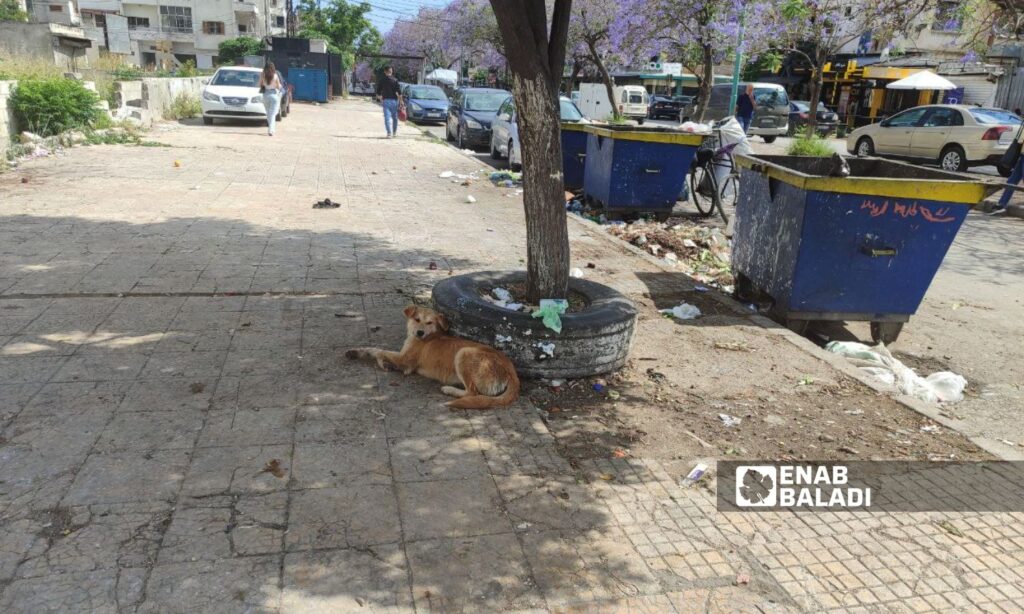Latakia – Linda Ali
On one of the corners leading to the al-Awqaf neighborhood in the city of Latakia, a stray dog finds a spot to rest beside garbage containers, which have been scattered by some poor residents who find therein something to stave off their hunger or items they can sell, like stale bread and plastic waste.
At first glance, the dog appears peaceful, but most passersby avoid walking near it, fearing a bite that might not have the necessary vaccine available to counteract its effects.
Sana (41 years old), who lives in the suburb of Bisnada, said that the number of stray dogs in city streets and suburbs has increased over the past two years, without finding an explanation for the phenomenon, which has prevented her from engaging in evening walks out of fear of an attack.
She added that she and her neighbors used to walk as a form of exercise after gym fees rose to more than 100,000 Syrian pounds per month, but they have stopped this activity, which used to help them relieve psychological pressures, due to fear of the dogs. Even though they have not heard of the dogs attacking anyone, they are still terrified by them.
Heavy presence at night
As night falls, the sound of barking dogs can be heard in most neighborhoods, whether in main areas like al-Ziraa and Project Ten, or in popular areas like al-Saliba and al-Daatur, or in suburbs like Saqqoubin and Bisnada.
Stray dogs can be observed on the streets after 12 a.m., when human activity subsides, said Lina (22 years old), a university student who lives in the Tabayat neighborhood. She added that she sees at least four or five dogs every night while on her balcony, especially near the nearby trash can.
She continued, saying that she watches the fights between dogs and cats with rising voices, a scene even rural residents did not see a few years ago, let alone in the city.
The power rationing helps these animals spread densely, as animals generally avoid the light. This might explain their dense presence compared to four or five years ago.
Dog bite costs 75,000 pounds
Last January, Jafar (28 years old) was near a grocery store in Latakia. It was not even 9:30 p.m. when he saw a dog on the street and tried to play with it a bit, but was surprised when it attacked and bit him on the leg.
The young man was rushed to the National Hospital to get an anti-rabies serum and primary aid. There, a nurse told him that the serum consisted of two types of drugs, of which they only had one available.
His brother went to buy the ampoule for 75,000 pounds, which was then mixed with the available drug at the National Hospital in Latakia so he could get the vaccine. The dog bite cost Jafar 75,000 pounds due to the unavailability of the drug, despite official statements affirming its availability in all state hospitals.
Last February, the Director of Chronic and Communicable Diseases at the regime’s Ministry of Health, Zuhair al-Sahwi, said that the vaccine and the necessary serum after a dog bite are available in all provinces. This contradicts Jafar’s incident, who had to buy the serum from a pharmacy outside the hospital.

